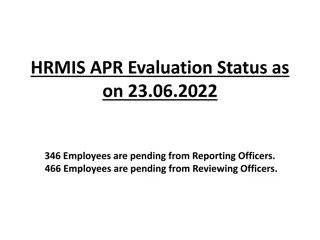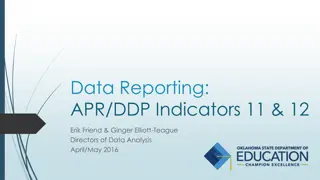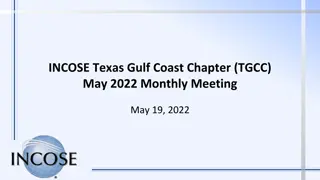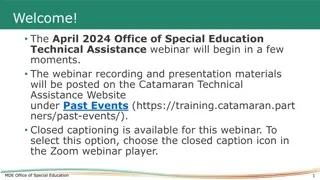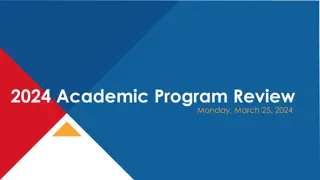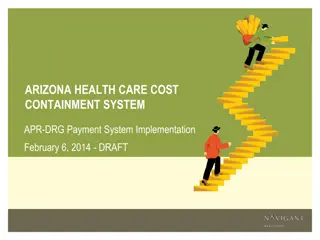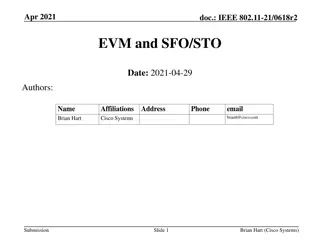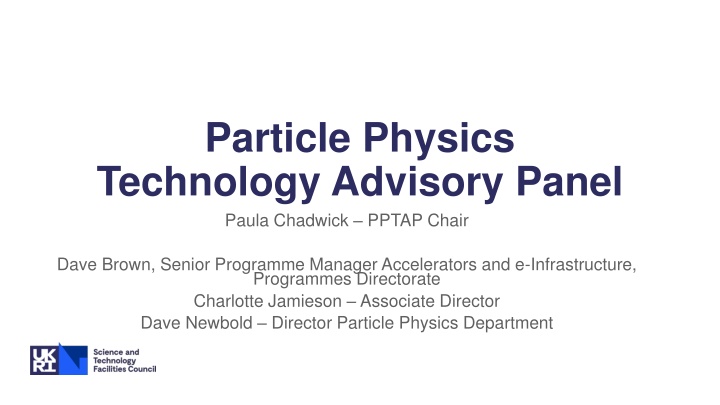
Particle Physics Technology Advisory Panel Overview
"Learn about the Particle Physics Technology Advisory Panel (PPTAP) and its role in shaping the future of particle physics. Discover the membership, aims, and roadmap of PPTAP in advancing research and development in detectors, accelerators, software, and computing."
Download Presentation

Please find below an Image/Link to download the presentation.
The content on the website is provided AS IS for your information and personal use only. It may not be sold, licensed, or shared on other websites without obtaining consent from the author. If you encounter any issues during the download, it is possible that the publisher has removed the file from their server.
You are allowed to download the files provided on this website for personal or commercial use, subject to the condition that they are used lawfully. All files are the property of their respective owners.
The content on the website is provided AS IS for your information and personal use only. It may not be sold, licensed, or shared on other websites without obtaining consent from the author.
E N D
Presentation Transcript
Particle Physics Technology Advisory Panel Paula Chadwick PPTAP Chair Dave Brown, Senior Programme Manager Accelerators and e-Infrastructure, Programmes Directorate Charlotte Jamieson Associate Director Dave Newbold Director Particle Physics Department
Why a PPTAP? The European Strategy for Particle Physics Update identified an immediate need for active R&D programmes for future detectors, accelerators, and software and computing The European Committee for Future Accelerators (ECFA) called on to establish an R&D roadmap for detectors The European Laboratory Directors Group (ELDG) called on to establish an R&D roadmap for accelerators Work started in autumn 2020 and reported to CERN Council in December 2021 UK input needed for these processes and to inform UK direction
Membership Chair: Paula Chadwick Accelerators Prof Deepa Angal-Kalinin, ASTeC STFC Prof Robert Appleby, Manchester Dr Chris Rogers, ISIS STFC Dr Ben Shepherd, ASTeC STFC Prof Matthew Wing, UCL Software and Computing Dr Neil Chue Hong, Edinburgh Dr Tim Scanlon, UCL Detectors Prof Adrian Bevan, Queen Mary Prof Kai Bongs, Birmingham Dr Rob Halsall, Technology STFC Dr Kimberley Palladino, Oxford Dr Angela Romano, Birmingham Dr Craig Sawyer Dr Eva Vilella-Figueras, Liverpool Prof Iacopo Vivarelli, Sussex Observers Prof Phil Burrows, JAI Prof Jim Clarke, ASTeC STFC Charlotte Jamieson, PD, STFC Prof Max Klein, Liverpool, RECFA Prof Dave Newbold, PPD, STFC Prof Peter Ratoff, CI 3
PPTAPs Remit Aims overview of the emerging R&D roadmaps understand the case for investment in R&D Need to look at current programme and landscape Gather evidence Community meetings: accelerators, computing, detectors, particle astro Look for strengths and synergies Explore routes forward Output - report spring 2022 (a little later than originally intended) 4
The report o Draft report shared with PPTAP members in September and feedback incorporated into draft o ECFA and LDG roadmaps presented to CERN Council in December 2021 picture continuing to evolve Led to slower than hoped for progress on the report o Draft report presented to Technology & Accelerators Advisory Board (TAAB) for discussion and feedback o Draft circulated to Science Board o Mature draft now exists 5
Key Messages PPTAP Report satisfies ToR: engage with community, consider UK coherence, place emphasis rather than prioritise UK actively involved in the production of the ECFA and LDG Roadmaps PPTAP supports the outcomes of the roadmaps Ramp-up and intensifying technology R&D requires concerted European coordination PPTAP sees appropriate pathways to answering the EPPSU call for enhanced and accelerated technology R&D for accelerators and detectors (and software and computing) Recognition that the UK cannot afford to be involved in everything Not actively ruled out UK activity in any of the ECFA/ELDG panel areas 6
Key Messages continued UK expertise/knowledge is sufficiently broad to be adaptable PPTAP able to identify strengths and issues confronting the community Already clear that there are a handful of prominent technologies in which the UK is well-positioned to lead Recognition of the importance of innovative R&D to the long horizon of the field and vibrancy of the UK community particle physics The traditional funding approach around science drivers may not be appropriate at present Focused technology R&D funding would help position the UK for future projects R&D projects excellent for training, enabling early-career researchers to hold grants Opportunities for blue sky funding 7
Issues for the UK Conceptual shift in funding with introduction of new technology strand Status quo does not respond to EPPSU, nor ECFA/ELDG Proposed programme of technology R&D could be perceived as reducing available project funding Funding constraints continue Rapid response to the ECFA and LDG roadmaps required - UK processes are not ideally set up to manage this Other reviews/processes underway in UK 8
Thank you Facebook: Science and Technology Facilities Council Twitter:@STFC_matters YouTube: Science and Technology Facilities Council

![Town of [Town Name] Real Estate Tax Rates and FY 2024 Budget Summary](/thumb/62211/town-of-town-name-real-estate-tax-rates-and-fy-2024-budget-summary.jpg)


